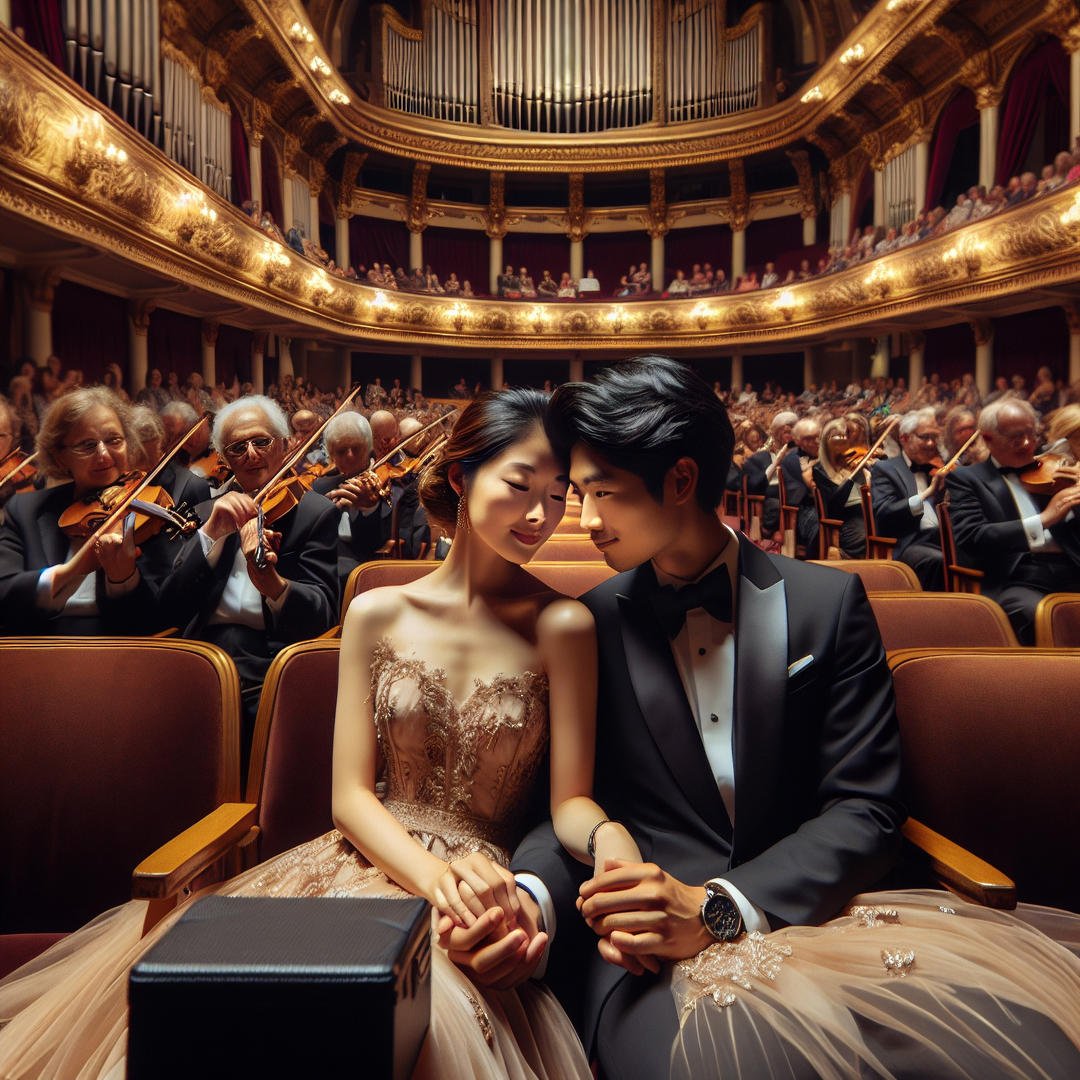
Queensland Symphony Orchestra (QSO) has courted controversy by using an A.I. generated image in a Facebook post.
The promotion was intended to encourage people to try “something different” on a Saturday night. Instead of drawing attention to QSO’s upcoming programming, however, the orchestra came under heavy criticism from Australia’s media and arts union, creative workers, online users, and orchestra players themselves.
The image showed an enamored couple dressed to the nines in the front row of a concert hall. Its bizarro A.I. elements include the couple’s freakish tangle of fingers, an audience comprised of violinists, and a mysterious squat briefcase that sits on the woman’s lap as though she’s just won Deal or No Deal.
“This is some of the worst A.I. generated artwork we’ve seen, but even worse is that it comes from an arts organization like the Queensland Symphony Orchestra,” the Media, Entertainment & Arts Alliance responded in a March 5 Facebook post. “It is inappropriate, unprofessional, and disrespectful to audiences and the musicians of the QSO. Creative workers and audiences deserve better from arts organizations.”
QSO, which appointed a new director of sales and marketing in December last year, was unapologetic. “At QSO, we encourage exploration, innovation, experimentation and the adoption of new technologies across all facets of the business,” QSO said. “From time to time we will use new marketing tools and techniques as we are an orchestra for all Queenslanders.”
The acrimony deepened when Slipped Disc, an online publication focused on classical music, reported that the dissatisfaction regarding the A.I. image included QSO orchestra players themselves. The players were said to be “furious,” but had been told to “stay in their lane” after lodging complaints with the marketing department.
The A.I. image was sourced from Shutterstock, which listed it under the A.I. prompt “two people having a date at a indoor classical music romantic concert.” Shutterstock signed a six-year deal with OpenAI in 2023 allowing the company to develop its model using the stock photo site’s database.
QSO is the latest arts organization to chose an A.I. image generator over a working artist. The central criticism is that such models are built off the uncompensated theft of artists’ intellectual property. Though, as one response to QSO’s post put it, perhaps controversy is the point.
“Bravo QSO on the publicity this image has generated,” Jayne Hughes wrote. “For all the naysayers, I read this as a bit of fun.”